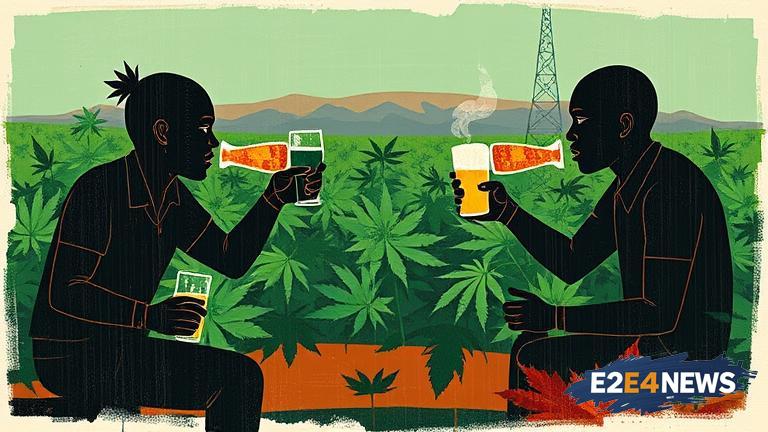A recent statement from a Namibian advocacy group has brought attention to the long-standing debate about the relationship between substance use and crime. The group asserts that alcohol, rather than cannabis, is the primary contributor to criminal activity in the country. This claim has sparked intense discussion among lawmakers, citizens, and experts in the field. According to the advocacy group, the available data and research indicate that alcohol is more closely linked to violent and non-violent crimes than cannabis. They argue that the focus on cannabis as a driver of crime is misplaced and that policymakers should instead prioritize addressing the harms associated with alcohol use. The group’s statement has been met with both support and criticism, with some arguing that it is a step in the right direction towards a more nuanced understanding of substance use and crime, while others express concern that it may send the wrong message about the risks associated with cannabis use. The debate highlights the complexity of the issue and the need for further research and discussion. In Namibia, as in many other countries, the relationship between substance use and crime is multifaceted and influenced by a variety of factors, including socioeconomic conditions, mental health, and access to education and employment opportunities. The advocacy group’s claim also raises questions about the effectiveness of current drug policies and whether they are adequately addressing the root causes of crime. Some experts suggest that a more comprehensive approach is needed, one that takes into account the interplay between different substances and the social and economic context in which they are used. Others argue that the focus should be on providing support and services to those affected by substance use, rather than solely on enforcement and punishment. The Namibian government has not yet responded to the advocacy group’s statement, but it is likely that the issue will continue to be a topic of discussion in the coming months. As the debate unfolds, it is essential to consider the potential implications of shifting the focus from cannabis to alcohol and how this might impact crime rates and public health outcomes. The advocacy group’s claim has also sparked interest among international observers, who are watching to see how the situation develops and what lessons can be learned from Namibia’s experience. In the meantime, citizens and stakeholders are encouraged to engage in the discussion and share their perspectives on the issue. By fostering a more informed and nuanced understanding of the relationship between substance use and crime, it is possible to develop more effective strategies for addressing the root causes of crime and promoting public safety. The conversation is also an opportunity to re-examine the role of substance use in Namibian society and to consider how best to support those who are struggling with addiction or other related issues. Ultimately, the goal should be to create a safer, healthier, and more just society for all Namibians. The advocacy group’s statement is a call to action, urging policymakers and citizens to rethink their assumptions about substance use and crime and to work towards a more comprehensive and effective approach. As the discussion continues, it will be important to prioritize evidence-based decision-making and to ensure that any policies or interventions are grounded in a thorough understanding of the complex issues at play. By working together and engaging in open and honest dialogue, it is possible to make progress towards a brighter future for Namibia. The issue is complex, and there are no easy answers, but by approaching the topic with sensitivity, nuance, and a commitment to evidence-based decision-making, it is possible to develop strategies that truly address the needs of the Namibian people.





